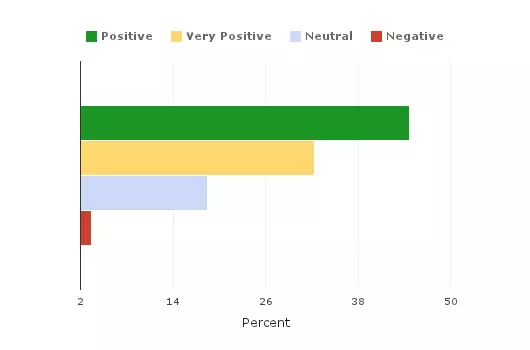IT: It’s a Love-Love Relationship
A survey of accomplished IT professionals indicates the passions and motivations that make for a successful career in the IT field.

As the CEO and founder of an IT training company, it’s my job to try and understand what makes IT professionals love their jobs enough to keep coming back for more. A question I am constantly asking people is, why IT?
My company recently surveyed over 2,000 IT professionals nationwide in an attempt to answer this very question. When asked why they stay in their careers, almost a majority (47 percent) said the most important factor was their love of technology. Interestingly, career advancement and ease of finding new opportunities in the field were at the bottom of the barrel, with 65 percent of respondents saying these ranked lowest in their book.
Rank why you continue to work in IT

What we found here was very revealing. The study shows that the majority of IT professionals love the challenges of working with technology even more than the satisfaction of career advancement (or a plumper bank account). This says a lot about the nature of the industry, because while there are an abundance of jobs and huge potential for upward mobility, an IT career is not for the faint of heart. IT pros are faced with a field that is constantly evolving, requiring them to not only keep up with training and certifications, but to constantly adapt and be ready to learn new skills as challenges arise on a daily basis. To really succeed in IT, you've got to love the work itself.
Because conversations about the booming IT job market often focus on the time and cost effectiveness of entry, I fear that some people are entering IT for the wrong reasons. Without a formal degree, entry level IT jobs have fairly high starting salaries, and you can advance more quickly than in many other careers. Almost 70% of our survey respondents feel good about their career prospects in 2013 and beyond, and it’s well known that IT jobs are growing like crazy across the U.S. For those who want to enter a lucrative, high growth industry, a career in IT seems like an easy choice.
How do you feel about your opportunities for career growth?

But the sole desire for professional advancement isn't enough for long-term success in this field. If you ask experienced IT professionals why they love their jobs and why they remain in the industry year after year, it’s not (just) about the money or career advancement. Their passion for the work really comes through.
In our survey, love of complex problem solving was the second highest rated reason for staying in IT. To be suited for a long and successful career in IT, you need to thrive on the myriad challenges presented on a daily basis, and you need to love learning at the breakneck pace of technological evolution. In all my years in the IT training industry, I am still amazed at the number of courses we release every week to get students up to speed on the latest software updates. For the successful IT pro, unfamiliar technologies aren't a scary obstacle they are forced to overcome, but an exciting opportunity to learn something new and grow their knowledge base.
What does this mean for people entering the field? IT is not for the guy or girl looking for a quick and easy career fix. I've seen too many of these types take a few IT training boot camps at the beginning to land a first job and then quickly burn out. These people think that cramming for a certification every few months or even years will lead to that high-paying manager role one day. Wrong.
The most successful IT professionals I know are the ones who keep coming back to the training materials on a frequent basis to make sure they've not only learned the skills, but mastered them. Our survey found that 37 percent of IT pros revisit their IT training materials weekly and almost 70 percent refer back monthly. Clearly, love of learning is a hugely important trait for sustained success.
My advice for anyone considering starting an IT career is to think carefully about your motivations. If it’s for the deceptively easy path to career advancement, I’d suggest looking elsewhere. To really succeed in this exciting and lucrative space, love for technology and learning must come first.
